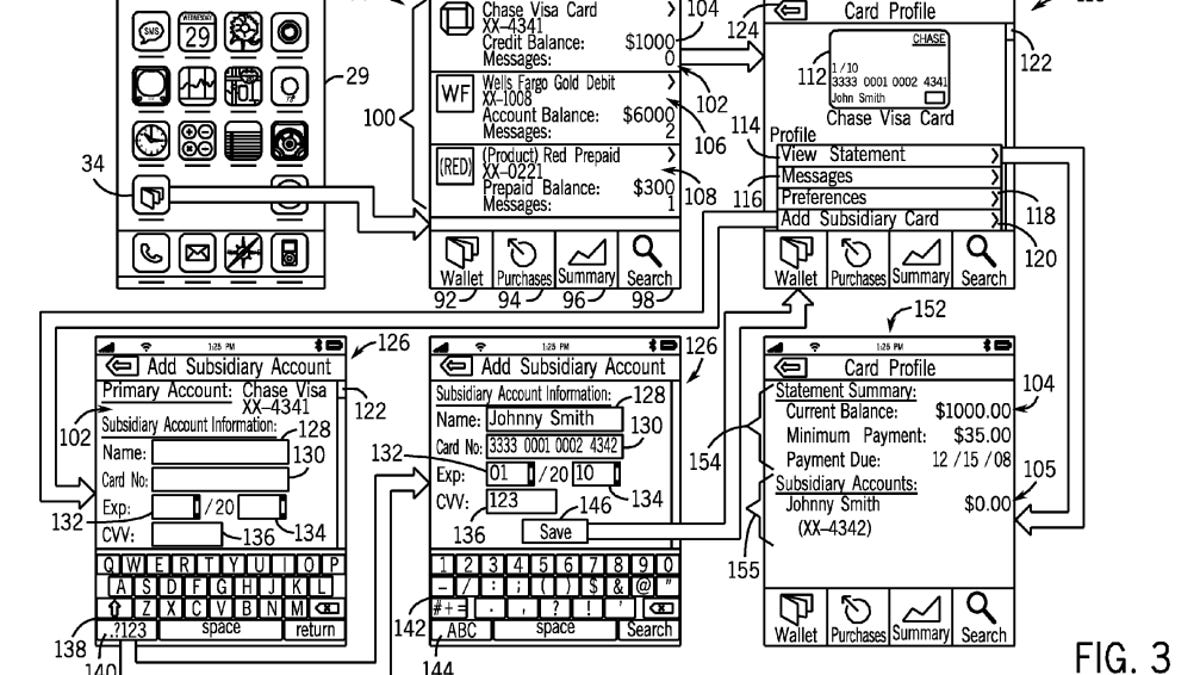Apple granted patent for kid-friendly mobile-payment tech
Apple has been granted a new patent detailing a way for parents to control the spending habits of their kids through their phone.
Apple today was awarded a patent for "parental controls," a system that lets adults manage purchases made on and made with a phone.
The patent, which was discovered by Patently Apple, outlines a system that lets adults control access to particular linked credit cards, as well as limit the stores at which goods are purchased. Apple originally filed for it on January 9, 2009.
In its filing, Apple makes the case that society is becoming "more mobile" and "fast-paced," with parents giving their children payment cards instead of cash--a solution that can result in a parent getting dinged for overages that may be out of their control.
"While the child may be authorized to initiate charges using a payment card, the parent may ultimately be responsible for paying for such charges," the patent reads. "Accordingly, it may be desirable to exert some level of control over the types of purchases or transactions a child is permitted to make using a subsidiary account."
The proposed solution, which is detailed in the filing, is giving parents (or cardholders at large) a way to set limits on spending using "E-Wallet" software that keeps track of all the cards and accounts. It also includes giving them tools to set parameters for spending at individual retailers. All of these rules could be altered when and where the purchase is being made, according to the patent filing.
Apple has been rumored to be working on a mobile-payment system since 2010, with the company having filed for a number of patents that included use cases for near-field communication (NFC) technology in its products. One of those entailed simply using an embedded NFC chip to pick up on a nearby item for purchase.
One of the more advanced technologies laid out is a smart shopping-cart system that could tell which items you had put in your shopping bag and let you pay for them on the spot with an NFC-enabled device. Despite such hints, Apple has not included NFC chips in its phones, tablets, or computers.
Apple has more than 225 million Apple ID accounts, something the company claimed last year to be the largest number of accounts attached to credit cards on the Web. Bringing that payment network outside the realm of digital goods presents not only a new business opportunity for Apple, but also a way to combat competitor Google, which beat it to the hardware punch, including NFC support in its Android mobile operating system and in a number of recent-model Android devices.
Yet the Google Wallet program has gotten off to a rather rocky start, adding to the intrigue of what Apple could do differently, if it were to step into the space. As my colleague Maggie Reardon detailed last month, carriers and device partners have been slow to adopt Google Wallet, and a security snag last month caused Google to temporarily suspend the use of its prepaid cards on the service.


